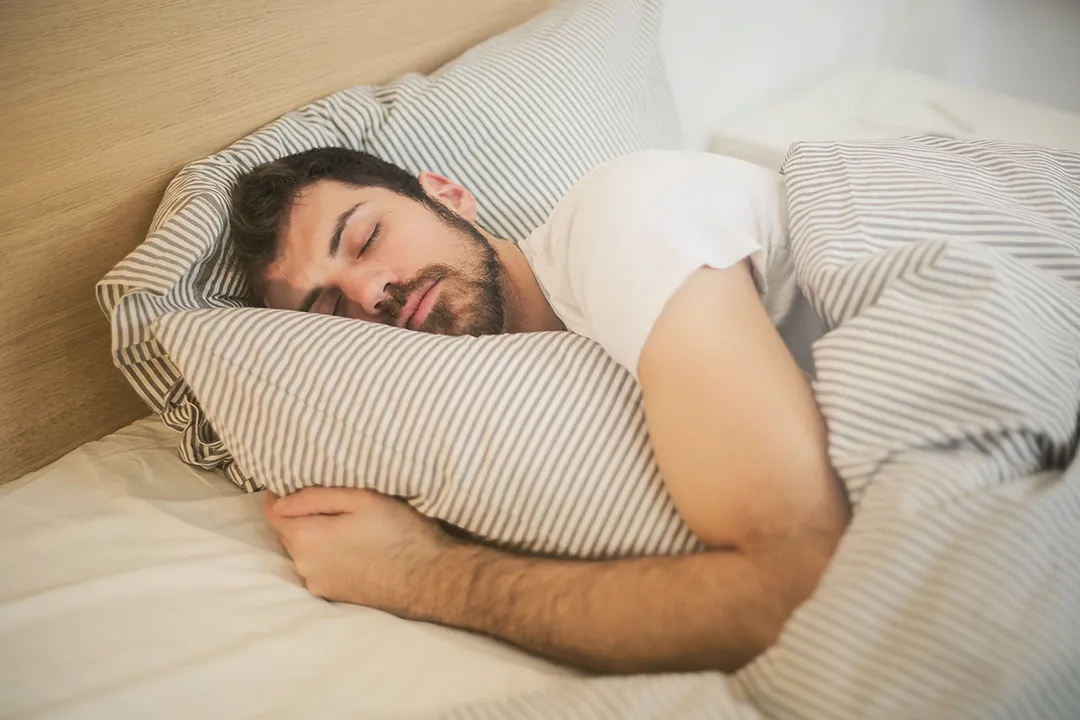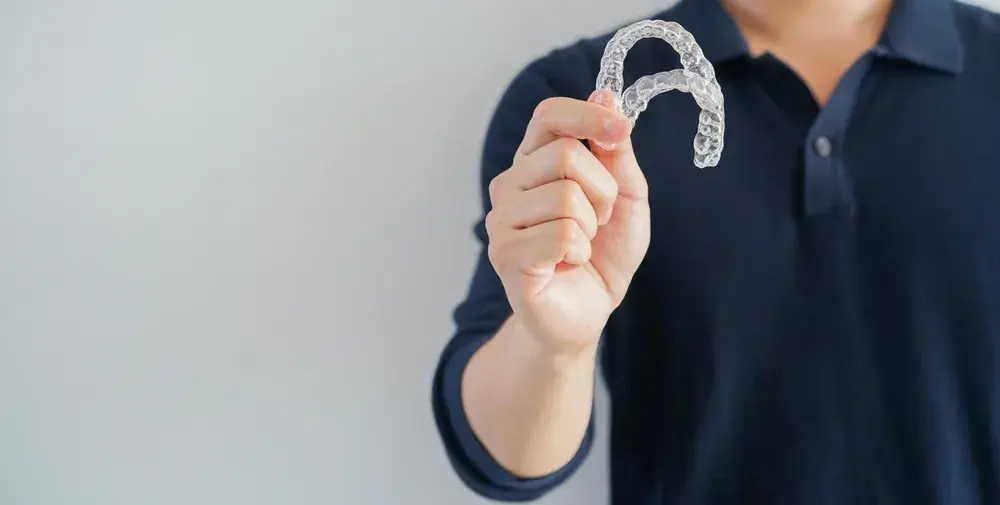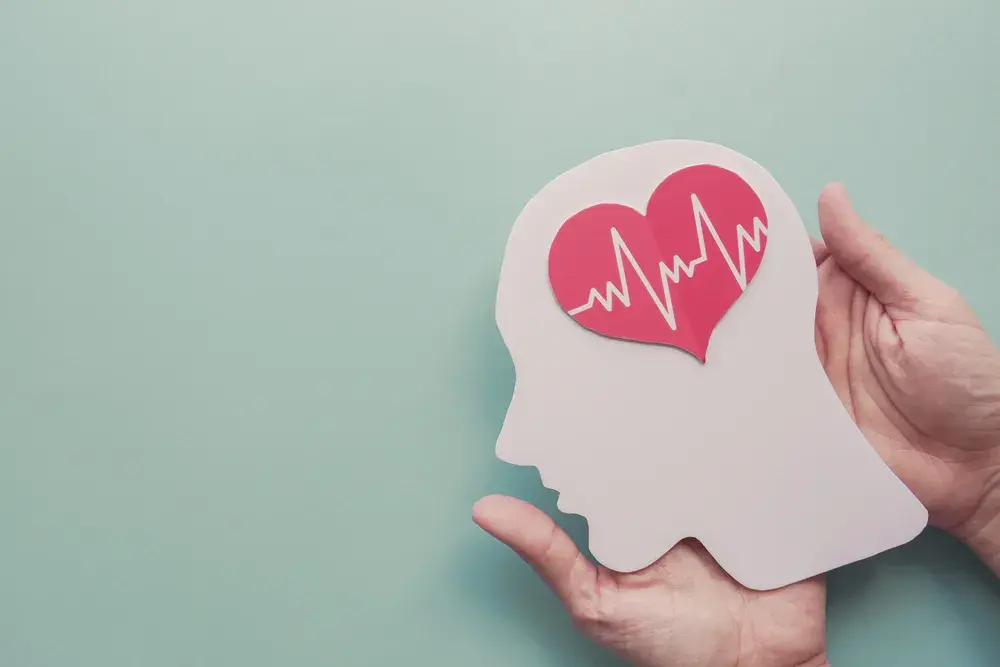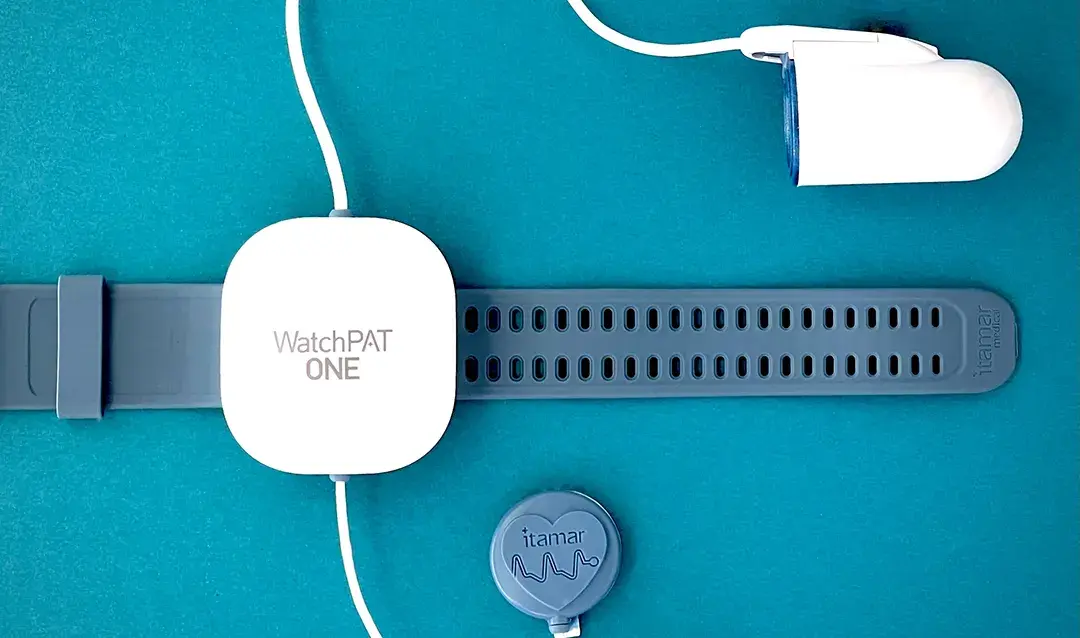How Sleep Apnea Can Impact Your Mental Health
Don't let sleep apnea take a toll on your mental health. Learn how this common sleep disturbance can affect your psychology.
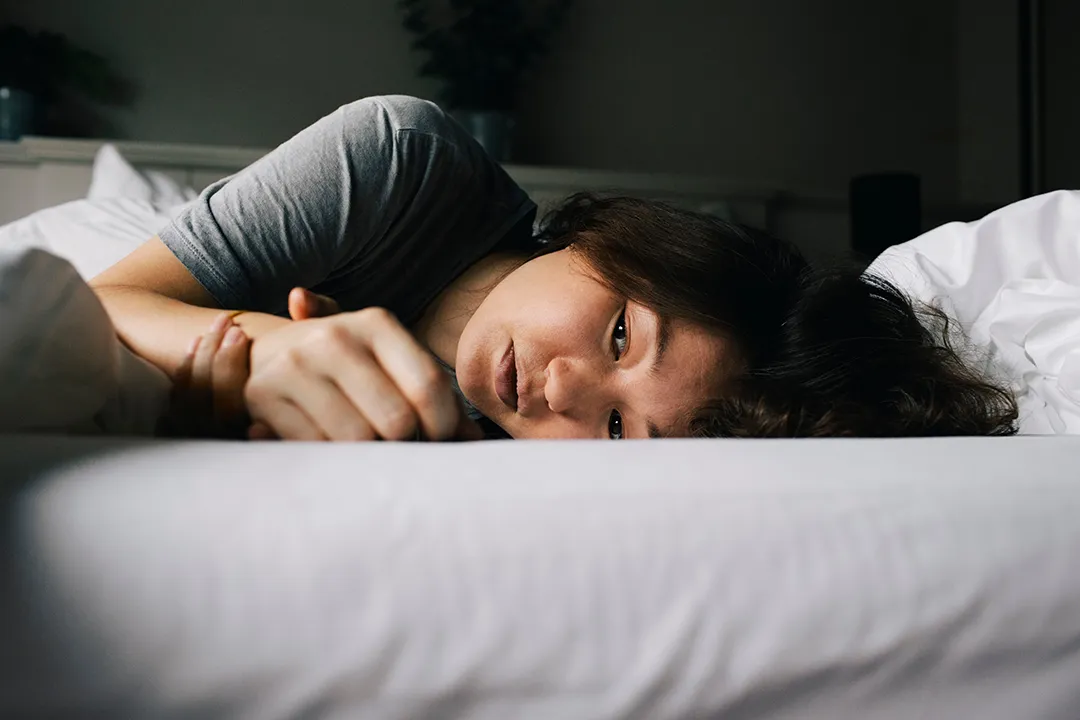
If you're struggling with mental health concerns like depression, anxiety, PTSD and more, untreated sleep apnea could be worsening or even causing those symptoms.
In my work with sleep apnea patients, it’s not uncommon for me to see patients suffering from both sleep apnea and a clinically-diagnosed mental health disorder. That association isn't just anecdotal—it's a recurring theme backed up by a large volume of well-cited sleep health research.
Why would sleep apnea have anything to do with mental health?
When it comes to sleep apnea and mental health, the knee bone is connected to the shin bone - in other words, the body is a complex and interwoven collection of systems that all affect each other.
The same is true here - if you want to know why poor sleep causes mental health issues, it’s because the biology of sleep and mental health are linked together tightly.
And the reason that’s true is because there’s a variety of biological processes that occur when you’re sleeping which serve to maintain your psychological health.
Neurotransmitters are critical brain chemicals for mental health, and sleep cycles have a huge impact on how they’re regulated.1
Disruptions to Circadian Rhythms (i.e., your body’s internal sleep clock) are increasingly being recognized for their effects on mental health.2
One of the exciting revelations of our lifetimes is the interplay between gut health and mental health, which is impacted tremendously through sleep.3
Sleep apnea causes you to stop breathing many times a night, which forces your body out of its current sleep cycle so you can wake up enough to start breathing again. While the specifics are complex, you can begin to see how that would interfere with the biological processes we’re talking about and impact your mental health.
Ok, so what mental health issues are associated with sleep apnea?
As time goes on, it’s clear that deficient sleep is strongly associated with a large variety of major mental health diagnoses.4 For our purposes, we’ll focus on the three most common diagnoses: depression, anxiety, and post-traumatic stress disorder.
#1: Depression
If you’ve never been depressed before, losing sleep is a great way to try it out. One large study with over 250,000 participants found that subjects with sleep apnea were 3.11 times more likely to have self-reported depression.4 Another systematic review of 73 research papers found that sleep apnea patients were 35% more likely to have depressive symptoms.5
#2: Anxiety
Ever had a short night of sleep and felt anxious when you woke up? You’re not the only one. One large patient study from 2015 found that having sleep apnea increases your chances of developing anxiety by 2.17 times, even going so far as to suggest that sleep apnea alone is an independent risk factor for developing anxiety in isolation from other contributors.6
#3: Post-Traumatic Stress Disorder (PTSD)
If it surprises you to think that sleep apnea could cause or contribute to PTSD, you have to think about what PTSD is - a poor response to a stressful event. And while it’s not entirely clear what the link between PTSD and sleep apnea actually is, we do know that much of fear extinction - the body’s way of dissociating from a traumatic event - happens during sleep.7 A larger literature review on the subject suggests that 75.7% of PTSD patients also have sleep apnea.8
Does treating sleep apnea improve mental health?
In many cases, it seems to.
Several studies have found this to be true specifically in relation to anxiety and depression.9, 10, 11 And while less is known on the interaction between sleep apnea and PTSD, it is likely that treating it could produce similar positive effects.
I struggle with mental health and think I might have sleep apnea - what do I do?
It's simple: Get tested!
There's no need to continue struggling with mental health symptoms. Take our free, five-minute sleep assessment to find out whether sleep apnea is the cause of your mental health struggles.
Siegel JM. The neurotransmitters of sleep. J Clin Psychiatry. 2004;65 Suppl 16(Suppl 16):4-7. PMID: 15575797; PMCID: PMC8761080.
Walker, W.H., Walton, J.C., DeVries, A.C. et al. Circadian rhythm disruption and mental health. Transl Psychiatry 10, 28 (2020). https://doi.org/10.1038/s41398-020-0694-0
Codoñer-Franch P, Gombert M, Martínez-Raga J, Cenit MC. Circadian Disruption and Mental Health: The Chronotherapeutic Potential of Microbiome-Based and Dietary Strategies. Int J Mol Sci. 2023 Apr 20;24(8):7579. doi: 10.3390/ijms24087579. PMID: 37108739; PMCID: PMC10146651.
Kaufmann CN, Susukida R, Depp CA. Sleep apnea, psychopathology, and mental health care. Sleep Health. 2017 Aug;3(4):244-249. doi: 10.1016/j.sleh.2017.04.003. Epub 2017 May 26. PMID: 28709510; PMCID: PMC5560422.
Garbarino S, Bardwell WA, Guglielmi O, Chiorri C, Bonanni E, Magnavita N. Association of Anxiety and Depression in Obstructive Sleep Apnea Patients: A Systematic Review and Meta-Analysis. Behav Sleep Med. 2020 Jan-Feb;18(1):35-57. doi: 10.1080/15402002.2018.1545649. Epub 2018 Nov 19. PMID: 30453780.
Su VY, Chen YT, Lin WC, Wu LA, Chang SC, Perng DW, Su WJ, Chen YM, Chen TJ, Lee YC, Chou KT. Sleep Apnea and Risk of Panic Disorder. Ann Fam Med. 2015 Jul-Aug;13(4):325-30. doi: 10.1370/afm.1815. PMID: 26195676; PMCID: PMC4508172.
Pace-Schott EF, Seo J, Bottary R. The influence of sleep on fear extinction in trauma-related disorders. Neurobiol Stress. 2022 Nov 7;22:100500. doi: 10.1016/j.ynstr.2022.100500. PMID: 36545012; PMCID: PMC9761387.
McCall CA, Watson NF. A Narrative Review of the Association between Post-Traumatic Stress Disorder and Obstructive Sleep Apnea. J Clin Med. 2022 Jan 14;11(2):415. doi: 10.3390/jcm11020415. PMID: 35054110; PMCID: PMC8780754.
Lee MC, Shen YC, Wang JH, Li YY, Li TH, Chang ET, Wang HM. Effects of continuous positive airway pressure on anxiety, depression, and major cardiac and cerebro-vascular events in obstructive sleep apnea patients with and without coronary artery disease. Ci Ji Yi Xue Za Zhi. 2017 Oct-Dec;29(4):218-222. doi: 10.4103/tcmj.tcmj_128_17. PMID: 29296051; PMCID: PMC5740695.
Schwartz DJ, Kohler WC, Karatinos G. Symptoms of depression in individuals with obstructive sleep apnea may be amenable to treatment with continuous positive airway pressure. Chest. 2005 Sep;128(3):1304-9. doi: 10.1378/chest.128.3.1304. PMID: 16162722.
Habukawa M, Uchimura N, Kakuma T, Yamamoto K, Ogi K, Hiejima H, Tomimatsu K, Matsuyama S. Effect of CPAP treatment on residual depressive symptoms in patients with major depression and coexisting sleep apnea: Contribution of daytime sleepiness to residual depressive symptoms. Sleep Med. 2010 Jun;11(6):552-7. doi: 10.1016/j.sleep.2010.02.007. Epub 2010 May 21. PMID: 20488748.
